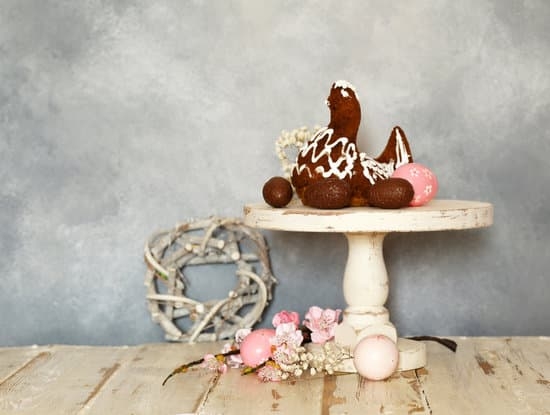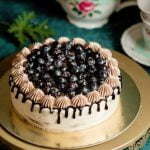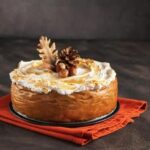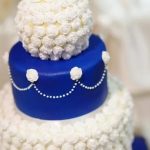When it comes to cake decoration, the type of frosting you use can make all the difference. One popular choice that has gained popularity for its light and airy texture perfect for intricate designs is whipping cream frosting. This delicate yet stable frosting is ideal for creating beautiful decorations on cakes, making it a favorite among bakers and decorators alike.
Whipping cream frosting offers a unique balance of richness and lightness that can transform a simple cake into a work of art. Its smooth consistency allows for easy spreading and piping, making it versatile for various decorating techniques. Whether you’re looking to add elegant swirls or intricate floral designs, whipping cream frosting provides the perfect canvas to unleash your creativity.
In this article, we will delve into the world of whipping cream frosting for cake decorating, exploring its benefits, how to make it from scratch, tips for achieving the perfect consistency, flavor variations to suit your taste preferences, decorating techniques to elevate your creations, as well as storage and troubleshooting tips. So if you’re ready to elevate your cake decorating game and impress your guests with stunning desserts, read on to discover the wonders of whipping cream frosting.
Benefits of Using Whipping Cream Frosting for Cake Decorating
Whipping cream frosting is a popular choice for cake decorating due to its light and airy texture, making it the perfect canvas for intricate designs and decorations. Unlike heavier buttercream frostings, whipping cream frosting provides a delicate finish that enhances the overall look of the cake. The soft peaks achieved when whipping cream creates a smooth consistency that can be easily piped or spread onto cakes with precision.
When it comes to cake decoration, whipping cream frosting offers numerous benefits that cater to both aesthetic appeal and taste. Here are some key advantages of using whipping cream frosting for your next decorating project:
- 1. Light and fluffy texture that allows for intricate designs
- 2. Smooth consistency that can be easily spread or piped onto cakes
- 3. Less sweet than traditional buttercream frostings, appealing to those who prefer a lighter flavor
Moreover, whipping cream frosting provides a versatile base for incorporating various flavors, from classic vanilla to decadent chocolate or fruity extracts. By adjusting the ingredients and proportions, decorators can customize the frosting to suit the theme or taste preferences of their cakes. Whether you’re looking to create a simple yet elegant design or an elaborate masterpiece, whipping cream frosting offers endless possibilities for bringing your cake decorating visions to life.
How to Make Whipping Cream Frosting From Scratch
Whipping cream frosting is a versatile and delicious option for decorating cakes, cupcakes, and other baked treats. Making your own whipping cream frosting from scratch is not only cost-effective but also allows you to customize the flavor and texture to suit your preferences. Here is a step-by-step guide on how to make whipping cream frosting at home:
Ingredients
- 1 cup heavy whipping cream
- 1/4 cup powdered sugar (adjust based on desired sweetness)
- 1 teaspoon vanilla extract (optional for flavor)
Proportions
- Start by chilling the mixing bowl and whisk attachment in the refrigerator for about 15-20 minutes.
- Pour the heavy whipping cream into the chilled bowl and begin whipping it on low speed to avoid splattering.
- Gradually increase the speed to medium-high and whip until soft peaks form.
- Add the powdered sugar and vanilla extract (if using) slowly while continuing to whip until stiff peaks form.
Once you have reached stiff peaks, be careful not to overbeat the frosting as it can become grainy or curdled. The light and airy texture of whipping cream frosting makes it perfect for piping intricate designs or spreading smoothly over a cake. Experiment with different flavors by adding chocolate ganache, fruit extracts, or instant coffee powder to create unique variations of this versatile frosting. Enjoy exploring the world of cake decorating with your homemade whipping cream frosting.
Tips for Achieving the Perfect Consistency
When it comes to creating beautiful and delicious cakes, the right frosting can make all the difference. Whipping cream frosting is a popular choice for cake decorating due to its light and airy texture, making it perfect for intricate designs and decorations.
However, achieving the perfect consistency can be tricky, as overbeating or undermixing can result in a frosting that is either too stiff or too runny. In this section, we will explore some tips for whipping the cream just right to ensure your frosting is smooth and easy to work with.
Room Temperature Cream
One of the key factors in achieving the perfect consistency for whipping cream frosting is starting with cream that is at room temperature. Cold cream can be difficult to whip evenly and may result in an inconsistent texture. Allow your whipping cream to sit at room temperature for about 30 minutes before you start whipping it.
Chilled Bowls and Whisk
To help the cream whip up faster and more efficiently, it’s essential to use chilled bowls and whisks. Place your mixing bowl and whisk in the refrigerator for about 15-20 minutes before you begin making your frosting. This will help keep the cream cold while also ensuring that it whips up quickly to achieve a stable consistency.
Watch Closely While Whipping
It’s crucial to keep a close eye on your whipping cream while beating it to avoid overbeating or undermixing. Start at a low speed until soft peaks form, then increase gradually until you reach the desired stiffness. Be mindful not to overwhip the cream, as this can cause it to become grainy or separate. Stop beating as soon as stiff peaks form and your frosting holds its shape when piped or spread on cakes.
Flavor Variations
When it comes to cake decorating, the flavor of the frosting plays a crucial role in enhancing the overall taste experience. Whipping cream frosting offers a versatile canvas for adding various flavors that can elevate the final product. Whether you prefer classic vanilla, indulgent chocolate, or fruity notes, there are numerous ways to customize whipping cream frosting to suit your preferences.
Vanilla Flavored Frosting
One of the most popular flavor variations for whipping cream frosting is vanilla. To infuse this classic flavor into your frosting, simply add a teaspoon of pure vanilla extract while whipping the cream. The aromatic notes of vanilla will complement the light and airy texture of the frosting, creating a delightful combination that pairs well with a wide range of cake flavors.
Chocolate Flavored Frosting
For chocolate lovers, incorporating cocoa powder or melted chocolate into whipping cream frosting can result in a decadent and rich flavor profile. To make chocolate whipping cream frosting, sift cocoa powder into the cream before whipping or gently fold in cooled melted chocolate for a luscious and velvety finish. This indulgent variation is perfect for decorating chocolate cakes or adding a hint of cocoa to lighter cake bases.
Fruit Extract Infused Frosting
If you’re looking to add a burst of freshness and fruity notes to your whipped cream frosting, consider using fruit extracts such as lemon, raspberry, or orange. By incorporating a few drops of fruit extract during the whipping process, you can create vibrant and flavorful frostings that are perfect for summery desserts or themed cakes. Experiment with different combinations to discover your favorite fruit-infused variations for an extra touch of uniqueness to your cake decorations.
By exploring these flavor variations and experimenting with different combinations, you can tailor whipping cream frosting to suit any occasion or personal preference.
Whether you opt for traditional vanilla, indulgent chocolate, or fruity infusions, these ideas can inspire you to take your cake decorating skills to the next level with deliciously flavored frostings.Take advantage of how flexible and adaptable whipping cream frostings are when it comes to adding unique flavors while maintaining their light and airy texture for stunning cake decorations.
Decorating Techniques
When it comes to cake decorating, whipping cream frosting offers a versatile and delicious option for creating beautiful designs. Whether you’re looking to pipe intricate flowers, smooth out a cake with perfectly spread frosting, or create unique decorative elements, whipping cream frosting is the perfect choice. Its light and airy texture makes it easy to work with and allows for precise detailing on your cakes.
One of the key benefits of using whipping cream frosting for cake decorating is its ability to hold different shapes and designs without melting or losing structure. You can easily create elaborate borders, swirls, rosettes, and other decorations using this type of frosting. Additionally, whipping cream can be colored with food coloring to achieve vibrant hues for your design needs.
To pipe decorations with whipping cream frosting, you can use a piping bag fitted with various tips such as star tips for creating rosettes or round tips for writing messages on cakes. To spread frosting evenly over a cake surface, use an offset spatula for a smooth finish. For those looking to get creative with their designs, try creating patterns like ruffles or waves by manipulating the texture of the whipped cream as you apply it to the cake.
| Advantages | Examples |
|---|---|
| Light and airy texture | Intricate flower piping |
| Versatile for different designs | Borders,Creatures,Rosettes etc. |
Storing and Handling
When it comes to cakes decorated with whipping cream frosting, proper storage is key to maintaining their freshness and integrity. Unlike buttercream or fondant-covered cakes, those adorned with whipping cream frosting require specific handling to prevent the frosting from becoming runny or losing its shape. Here are some important tips to ensure that your beautifully decorated cake stays fresh and visually appealing:
First and foremost, it is essential to refrigerate cakes decorated with whipping cream frosting. The dairy content in the whipped cream makes it susceptible to spoilage at room temperature. Place the cake in an airtight container or cover it loosely with plastic wrap before refrigerating to prevent any odors from seeping into the frosting.
Additionally, avoid placing the cake in direct sunlight or near a heat source as this can cause the whipping cream frosting to melt or lose its shape. If possible, store the cake on a middle shelf in the refrigerator away from strongly scented foods that could affect its flavor.
When serving refrigerated cake, allow it to sit at room temperature for about 15-20 minutes before slicing to give the whipping cream frosting a chance to slightly soften for easier cutting.
Properly stored cakes decorated with whipping cream frosting can last in the refrigerator for up to 3 days without compromising taste or texture. However, keep in mind that delicate decorations like piped rosettes or intricate designs may start to lose definition over time. To extend the freshness of your cake further, you can also consider freezing it for up to three months. Just make sure it is tightly wrapped in plastic wrap and aluminum foil before freezing.
| Storage Tip | Details |
|---|---|
| Refrigerate | Store cakes in an airtight container in the refrigerator |
| Avoid Heat Exposure | Keep cakes away from direct sunlight or heat sources |
| Serve at Room Temperature | Allow refrigerated cake to sit at room temperature for easier serving |
| Freezing Option | You can freeze cakes for up to three months if tightly wrapped |
Troubleshooting Common Issues
Whipping cream frosting is a popular choice for cake decorating due to its light and airy texture that allows for intricate designs. However, even with the best techniques, sometimes issues can arise while working with this delicate frosting. One common problem that decorators face is melting frosting, especially in hot and humid environments.
To prevent this, it is essential to ensure that the cake is properly chilled before applying the frosting. Additionally, using stabilized whipping cream or adding a stabilizer like gelatin can help the frosting hold its shape better.
Another common issue when working with whipping cream frosting is deflating decorations during piping or spreading. This can happen if the cream is overwhipped or if it becomes too warm while being handled.
To avoid this problem, make sure to whip the cream only until stiff peaks form – overwhipping can cause it to lose its structure. It’s also important to keep the frosting and cake refrigerated until you are ready to decorate, as heat can cause the whipped cream to deflate.
If you encounter any of these issues while decorating with whipping cream frosting, there are some quick fixes you can try. If your frosting starts to melt, place the cake in the refrigerator for a few minutes to firm up the icing.
For deflated decorations, carefully smooth out the affected areas with an offset spatula and then refrigerate again until set. By being aware of these common problems and having solutions on hand, you can confidently create beautiful cakes using whipping cream frosting for all your special occasions.
Conclusion
In conclusion, choosing the right frosting for cake decorating is crucial to achieving a stunning and delicious end result. Whipping cream frosting stands out as a popular choice due to its light and airy texture, making it ideal for intricate decorations on cakes. Its versatility allows for endless creativity in design, whether you are piping delicate swirls or spreading a smooth layer over a cake.
By following the step-by-step guide provided to make whipping cream frosting from scratch, anyone can master the art of creating this delectable topping. With just a few simple ingredients and proper proportions, you can whip up a batch of frosting that will elevate your cake decorating game to new heights. Experimenting with different flavors like vanilla, chocolate, or fruit extracts can add an extra dimension to your creations.
As you embark on your journey of cake decoration with whipping cream frosting, remember to pay attention to achieving the perfect consistency. Proper techniques during the whipping process will help you avoid common issues such as overbeating or undermixing.
By mastering these tips and tricks, you’ll be able to create visually stunning cakes that taste as good as they look. So go ahead and try making your own whipping cream frosting for cake decorating – your taste buds (and guests) will thank you.
Frequently Asked Questions
Can You Use Whipped Cream Frosting to Decorate a Cake?
Whipped cream frosting can certainly be used to decorate a cake, but it may not hold up as well as buttercream or fondant. It is important to keep the cake refrigerated until serving to prevent the whipped cream from melting.
How Do You Stiffen Whipped Cream for Piping?
To stiffen whipped cream for piping, it is crucial to start with cold heavy whipping cream and a chilled bowl. Beating the cream at medium speed to incorporate air, then gradually adding powdered sugar or stabilizers like gelatin can help create a firmer consistency ideal for piping.
Can I Decorate a Cake With Heavy Whipping Cream?
Decorating a cake with heavy whipping cream is possible, but it may not hold intricate designs as well as buttercream or fondant. It is essential to stabilize the heavy whipping cream with gelatin or powdered sugar to ensure it maintains its shape and texture while decorating.

Welcome to our cake decorating blog! My name is Destiny Flores, and I am the proud owner of a cake decorating business named Cake Karma. Our mission is to provide delicious, beautiful cakes for all occasions. We specialize in creating custom cakes that are tailored specifically to each customer’s individual needs and tastes.





